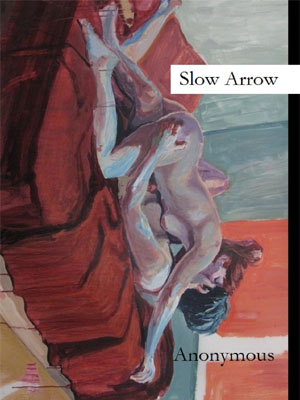 Nihilist literature has never particularly taken off because the mainstream doesn’t understand nihilism, and confuses it with the kind of fatalistic hyper-individualism of Stavrogan or Caulfield.
Nihilist literature has never particularly taken off because the mainstream doesn’t understand nihilism, and confuses it with the kind of fatalistic hyper-individualism of Stavrogan or Caulfield.
A relatively new author, Anonymous, has made available to readers of Nihil.org three works of a more emotional take on nihilism, centered on the caprice and vertigo of existential decisionmaking in a dystopian present tense future.
The Shadow Buddha Trilogy, according to its author, is unique among nihilist literature. “These writings do not follow the INTJ or ENTJ personality type one would usually encounter with a Nihilist. These writings are more INFP or INTP in nature…a semi-entertaining or artistic direction with an emphasis on the individual’s moods of extreme alienation,” said Anonymous.
The three books target different themes:
-
Part 1: In Grand Purple Robes of Madness
Written as if it were an anonymous diary. This book’s major theme is the alienation of a mind fully aware of Nietzsche’s impact, as well as Ecclesiastes, Schopenhauer, Heidegger, Sartre, Derrida, etc. Includes an essay on Optimism/Pessimism, an essay on Seduction, an Essay on Prometheus Bound by Aeschylus, Comments on Jung, Proust and Heidegger as well as some Surrealist passages. Book seems to end with zero progress. -
Part 2: Spectres of Confusion
This segment takes the anonymous diary style in a new direction. Instead of one voice, we are given the unique and contrasting voices of each person who happened to handle the book and pass in on through history. The book has its own back story/curse/mythology basically for the sole purpose of mimicking the bible and poking fun at such a trans-generation human project. Later sections of the book feature fresh anecdotes about Diogenes and a revisiting of Baudrillard’s book Simulation and Simulacra. This book’s most notable essay is a complete demolition of Descartes’s Cartesian Primacy. Sartre claimed there was no way beyond the supposed “Reef of Solipsism”. This essay demonstrates the error of that assertion and its uniquely Western bias. Also of note are essays on the nature and expression of genius using Nietzsche as an example. This book ends with a wink as to the nature of its own autistic mosaic, but offers no spiritual solace. -
Part 3: Slow Arrow
Taking its title from Nietzsche’s aphorism on the slow arrow of beauty, from his book, Human, All too Human, we plunge without warning into a state of neurotic hysteria created by the first to volumes. Reminiscent of August Strindberg’s semi-fictional book The Inferno, we’re pulled into a mental attitude which alienates and displaces us from page one. Throughout the book, we’re gradually given clues and hints about a Shadow Buddha concept. The theme of a Shadow Buddha or anti-Buddha (akin to Cioran’s hints about a “Buddha with the soul of Judas”…) is slowly demonstrated…Not just atheism or factual Nihilism, but an anxiety hell of cosmic pointlessness…the religious atmosphere turned inside-out and made nightmare. A debris of fragmented surrealism ensues using the voices of a Cerebral Palsy cripple, a misanthrope and a young girl. Essays on Fernando Pessoa, Nietzsche and Plato round out this mosaic of incompletion.
To download these books, follow this link to the archive containing .mobi, .pdf and .epub files. If you prefer the paper version, you can purchase a Kindle edition of Spectres of Confusion, In Grand Purple Robes of Madness, and Slow Arrow for $2.99 apiece or order them in print form for $21.95 apiece.
Leave a Reply
You must be logged in to post a comment.